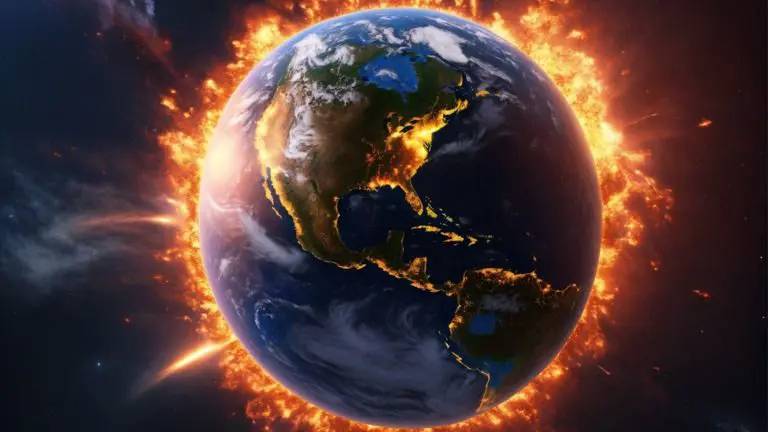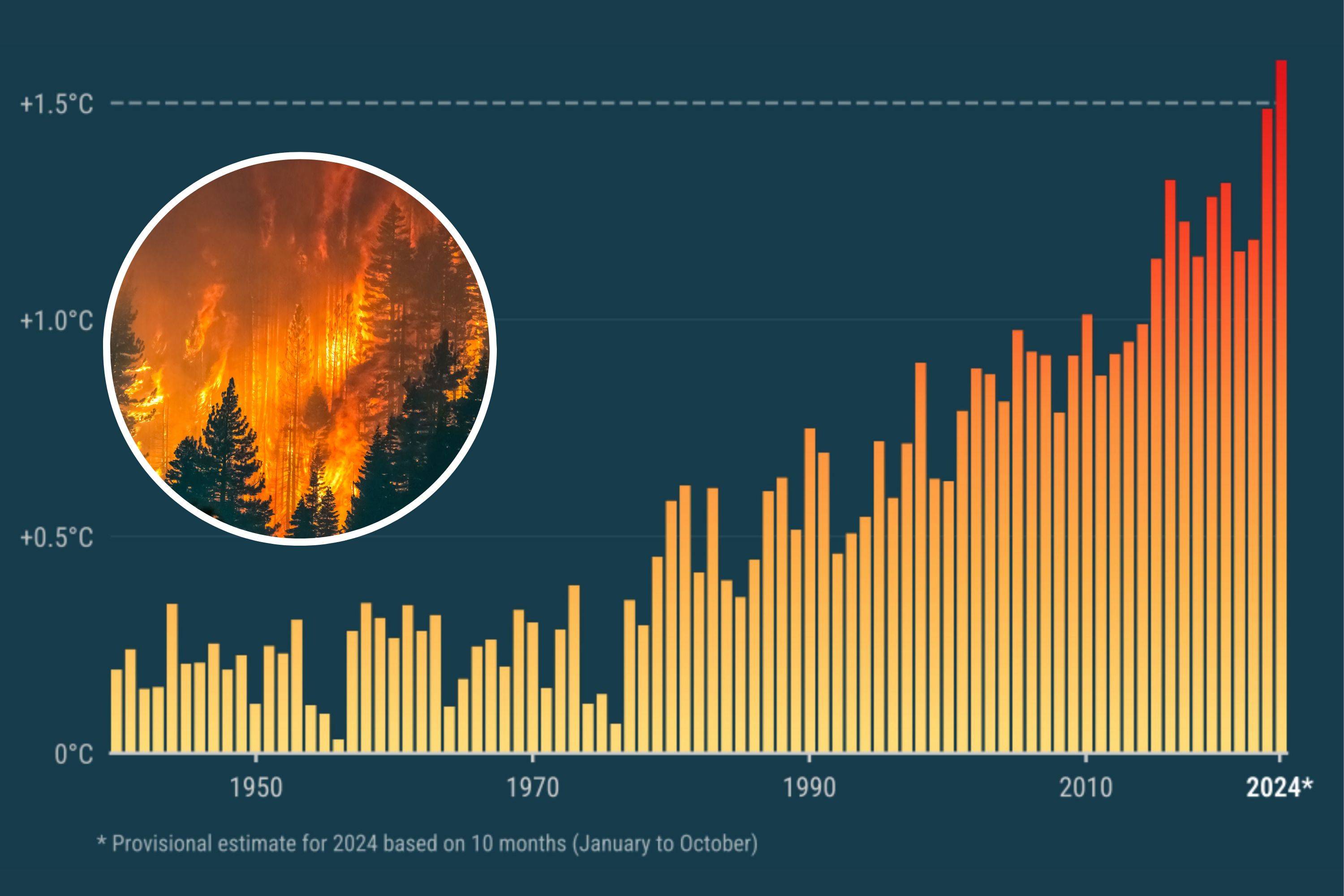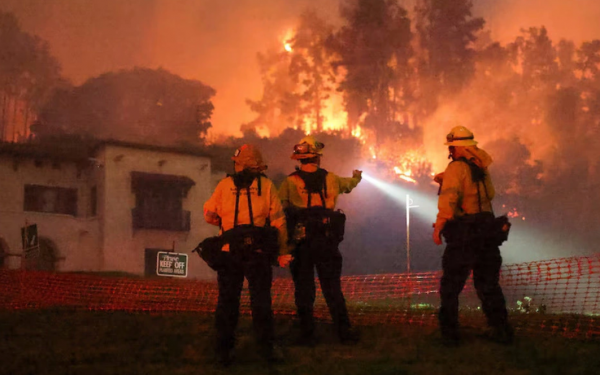Earth breaks yearly heat record and lurches past dan.ger.ous warming threshold
Earth recorded its hottest year ever in 2024, with such a big jump that the planet temporarily passed a major climate threshold, weather monitoring agencies announced Friday.

It’s the first time in recorded history that the planet was above a hoped-for limit to warming for an entire year, according to measurements from four of the six teams. Scientists say if Earth stays above the threshold long-term, it will mean increased deaths, destruction, species loss and sea level rise from the extreme weather that accompanies warming.

And that would come on top of a year of deadly climate catastrophes — 27 billion-dollar disasters in the U.S. alone in 2024 — and as 2025 begins with devastating wildfires in southern California.
Last year’s global average temperature easily passed 2023’s record heat and kept going. It surpassed the long-term warming limit of 1.5 degrees Celsius (2.7 degrees Fahrenheit ) since the late 1800s that was called for by the 2015 Paris climate pact, according to the European Commission’s Copernicus Climate Service, the United Kingdom’s Meteorology Office, Japan’s weather agency and the private Berkeley Earth team.
Only two U.S. government agencies had Earth below that 1.5 mark. The National Oceanic and Atmospheric Administration and NASA had last year at 1.46 degrees Celsius (2.63 degrees Fahrenheit) and 1.47 degrees Celsius (2.65 degrees Fahrenheit).

The Copernicus team calculated 1.6 degrees Celsius of warming, Japan 1.57 and the British 1.53. Berkeley Earth — founded by a climate change skeptic — came in the hottest at 1.62 degrees.
Much of the differences, which are small, stem from which ocean temperature tools are used. The World Meteorological Organization crunched the six estimates into a composite of 1.55 degrees, which NASA climate scientist Gavin Schmidt called a “reasonable assessment.”
“The primary reason for these record temperatures is the accumulation of greenhouse gases in the atmosphere” from the burning of coal, oil and gas, said Samantha Burgess, strategic climate lead at Copernicus. “As greenhouse gases continue to accumulate in the atmosphere, temperatures continue to increase, including in the ocean, sea levels continue to rise, and glaciers and ice sheets continue to melt.”
Last year was the hottest year for the United States, NOAA said. It was not only the hottest in recordkeeping that goes back to 1850, but likely the hottest for the planet in 125,000 years, Burgess said.
“There’s nothing to indicate that it won’t continue,” NOAA monitoring chief Russ Vose said Friday. “When there’s more heat in the system that has a cascading effect on other parts of the system. Sea level goes up. Warmer air can hold more moisture which tends to equate to more extreme storms. There’s a lot of impacts that go along with a warmer world.”
By far the biggest contributor to record warming is the burning of fossil fuels, several scientists said. Schmidt said the El Nino that started the year probably added a tenth of a degree Celsius to this year’s figures.















